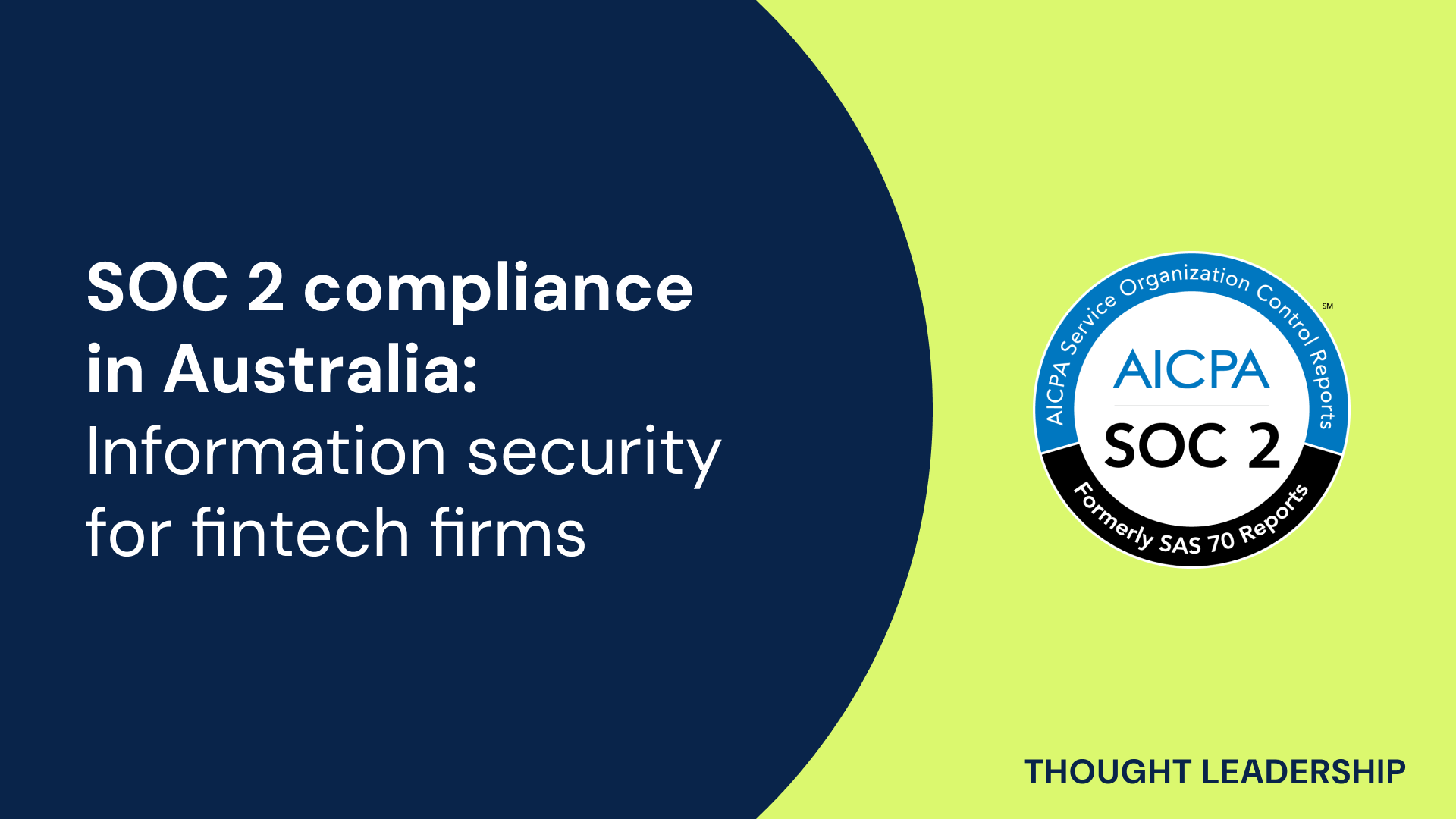The GRC buyer’s guide for 2025: Building resilience with AI-powered, federated solutions
Discover the ultimate GRC buyer's guide for 2025! Uncover how AI-powered, federated solutions transform compliance and security management for industries like government, aerospace, banking, and more. Learn about centralized control, continuous compliance, and advanced cyber GRC capabilities. Download now!
-1.png?width=200&height=249&name=Group%20193%20(1)-1.png)
The GRC buyer’s guide for 2025: Building resilience with AI-powered, federated solutions
What is ESG?
ESG, or Environmental, Social, and Governance, is a term used to describe the three key factors that measure the sustainability and ethical impact of a business. Environmental factors consider a company’s impact on the natural environment, such as its carbon emissions and environmental footprint. Social factors assess a company’s relationships with employees, customers, and communities, including issues like human rights and social impacts. Governance factors examine a company’s management structure, board composition, and its adherence to ethical business practices. ESG has gained significant traction in recent years, as businesses recognize the importance of integrating sustainability and social responsibility into their operations. By considering ESG factors, businesses can improve their financial performance, enhance their brand reputation, mitigate risks, and attract conscious investors and customers. Moreover, ESG considerations provide a broader understanding of a company's impact on society and the environment, highlighting the importance of responsible and sustainable business practices. Consequently, businesses are increasingly investing in ESG initiatives to drive positive change, foster long-term growth, and contribute to a more sustainable future.
Why is ESG important?
ESG, or environmental, social, and governance factors, have become increasingly important for businesses due to several key reasons. Firstly, considering financially material factors is vital for achieving long-term risk-adjusted returns. By incorporating ESG considerations into investment decisions, businesses can identify both risks and opportunities that may significantly impact their financial performance. Ignoring these factors could lead to missed opportunities or exposure to potential risks, resulting in suboptimal investment outcomes.
Secondly, businesses need to acknowledge their fiduciary duty to clients. As the financial landscape continues to evolve, clients are increasingly demanding strategies that align with their values and incorporate ESG principles. By recognizing this responsibility and integrating ESG into their investment strategies, businesses can better meet client expectations and enhance their reputation as trusted stewards of capital.
Moreover, businesses must understand the scale and extent of disruptive megatrends. Issues such as climate change, social inequality, and governance controversies have the potential to create substantial financial risks or opportunities. A failure to address these issues could lead to significant business disruptions or missed chances to drive positive impact.
To navigate these challenges, businesses need thoughtful, practical, research-driven, and forward-looking approaches to ESG integration. By leveraging data, engaging with stakeholders, and aligning their business models with sustainable practices, companies can effectively manage risks, enhance their financial performance, and contribute to a more sustainable future.
Social impacts of businesses
Businesses today have a profound effect on society, and it is crucial for them to understand and address the social impacts they create. Social impacts encompass a wide range of issues, including human rights, social inequality, labor standards, community development, and consumer welfare. Ignoring these concerns can lead to reputational damage, legal challenges, and potential boycotts. Moreover, businesses that actively work to address these social impacts can create positive change, build strong relationships with stakeholders, enhance customer loyalty, attract and retain talented employees, and ultimately contribute to a more inclusive and sustainable society. To achieve these benefits, businesses must integrate social considerations into their strategies, prioritize ethical business practices, and actively engage with external stakeholders to ensure their decisions have a positive impact on social factors.
The positive impact on society
The positive impact that businesses can have on society is immense. By actively considering factors such as diversity and inclusion, customer satisfaction, community engagement, and human rights, businesses can contribute to the betterment of society.
Diversity and inclusion initiatives within companies create opportunities for people from different backgrounds and perspectives to come together, fostering innovation and creativity. This not only benefits the company but also promotes a more inclusive and equitable society.
When businesses prioritize customer satisfaction, they create products and services that address the needs and desires of consumers. This leads to increased customer loyalty and a positive impact on society as a whole.
Community engagement is another crucial aspect of corporate social responsibility. Businesses that actively engage with their communities through philanthropy, volunteering, and partnerships can make a tangible positive impact by supporting local development and addressing community needs.
Respecting and promoting human rights is of utmost importance for businesses. By upholding fair labor practices, ensuring safe working conditions, and respecting the rights of employees and suppliers, companies contribute to a more just society.
These social aspects of ESG (Environmental, Social, and Governance) play a vital role in shaping a company's reputation and success. Customers, employees, and investors are increasingly prioritizing companies with strong social values. Thus, focusing on these aspects not only leads to positive societal impact but also benefits the company economically and in terms of long-term sustainability.
Employee engagement and human rights
Employee engagement and human rights play a vital role in the context of Environmental, Social, and Governance (ESG) considerations for businesses. Prioritizing these factors not only contributes to improved ESG performance but also yields numerous benefits for organizations.
First and foremost, businesses that prioritize employee engagement and well-being foster a positive work environment, leading to increased job satisfaction and productivity. Engaged employees are more likely to be motivated, innovative, and committed to the company's goals and values. This, in turn, enhances overall business performance and financial results.
Furthermore, establishing fair labor practices and promoting human rights within an organization demonstrate a commitment to ethical and socially responsible business practices. This includes providing safe working conditions, fair wages, and opportunities for employee growth and development. Respecting human rights also extends to suppliers and partners, ensuring that no exploitative practices are involved in the supply chain.
Beyond improving ESG performance, these efforts have a positive impact on talent attraction and retention. In today's competitive job market, employees are increasingly seeking out organizations that prioritize their well-being, diversity, and inclusion. Companies that demonstrate a commitment to these principles are more likely to attract top talent and retain skilled employees, ultimately leading to greater success and sustainability in the long-term.
Sustainable business practices
Sustainable business practices are essential for companies looking to integrate Environmental, Social, and Governance (ESG) principles into their core operations. By adopting these practices, businesses can not only positively impact the environment and society but also benefit financially through operational efficiency and cost-saving opportunities.
One key area where businesses can focus on sustainability is resource utilization. By reducing waste and optimizing resource usage, companies can minimize their environmental impact and improve operational efficiency. For example, implementing recycling programs and using eco-friendly materials can significantly reduce waste generation and promote a circular economy. Additionally, reducing water consumption through water-saving technologies and practices helps conserve this valuable resource.
Another crucial aspect of sustainable business practices is transparency. Companies can enhance their stakeholder engagement by openly communicating their ESG initiatives and progress. This transparency builds trust and credibility among customers, investors, employees, and communities. Furthermore, it allows businesses to identify areas for improvement and collaborate with stakeholders to address social and environmental challenges effectively.
Implementing these sustainable practices not only aligns with ESG principles but also helps companies identify cost-saving opportunities. By reducing energy consumption, minimizing waste generation, and optimizing resource usage, businesses can achieve significant cost efficiencies in their operations. These savings can be reinvested into innovation and growth, providing a competitive advantage in the market.
Governance issues and corporate strategy
Governance issues play a critical role in shaping corporate strategy and are an integral component of ESG (Environmental, Social, and Governance) considerations. One key governance issue is accurate reporting to stakeholders. Companies must provide transparent and reliable information on their environmental and social impacts, as well as their risk management practices. Accurate reporting builds trust and confidence among stakeholders, enabling them to make informed decisions and hold businesses accountable for their actions.
Incorporating governance into corporate strategy also involves accountability for risk and performance management. Effective governance frameworks establish clear responsibilities and mechanisms for monitoring and managing risks related to environmental and social factors. By integrating these considerations into decision-making processes, companies can mitigate potential risks, improve performance, and enhance long-term sustainability.
Ethical business practices, such as preventing bribery and corruption, are another governance issue relevant to corporate strategy. Businesses must establish robust anti-bribery policies and procedures to uphold integrity and maintain ethical standards. Adhering to ethical practices not only preserves reputation but also fosters a fair and sustainable business environment.
Governance issues are closely intertwined with environmental and social aspects of ESG. Transparent decision-making processes and accurate reporting enable businesses to address environmental and social challenges effectively. By considering the interests of all stakeholders, companies can make informed decisions that align with sustainable practices. Moreover, strong governance frameworks ensure that environmental and social aspects are systematically considered in corporate strategies, maximizing positive impacts and minimizing negative ones.
Ethical business practices for long-term success
Ethical business practices play a crucial role in ensuring long-term success for companies. By adhering to ethical standards, businesses can enhance their reputation, build trust with stakeholders, and foster a sustainable business environment.
Implementing and promoting ethical business practices is not only the right thing to do but also has tangible benefits for a company's overall ESG (Environmental, Social, and Governance) performance. One key aspect of this is in marketing and advertising. Adopting ethical marketing practices, such as honest and transparent communication, can boost a company's ESG performance by promoting integrity and trustworthiness. This, in turn, can lead to positive customer experiences, improved brand loyalty, and increased customer satisfaction.
Integrating ESG principles into core operations is another essential aspect of ethical business practices. By considering environmental and social factors in decision-making processes, companies can identify cost-saving opportunities, reduce resource waste, and lower operational costs. For example, implementing energy-efficient practices not only reduces a company's environmental impact but also leads to significant cost savings on energy bills. Similarly, adopting responsible sourcing practices can help minimize the negative social and environmental impacts associated with supply chains.
Carbon emissions and environmental issues
In today's world, carbon emissions and environmental issues have become crucial considerations for businesses. The impact of climate change, pollution, and depletion of natural resources has raised awareness about the urgent need for sustainable practices. Companies that prioritize reducing their carbon footprint and addressing environmental issues not only contribute to the preservation of our planet but also benefit themselves in numerous ways. By proactively managing their environmental impact, businesses can ensure long-term sustainability, mitigate risks associated with climate-related regulations, and attract conscious investors who consider environmental factors in their investment decisions. Moreover, adopting sustainable practices can lead to cost savings, improved energy efficiency, and enhanced reputation among customers and communities. As businesses increasingly recognize the importance of carbon emissions and environmental issues, incorporating these considerations into their core strategies will become essential for both the planet and their own success.
Measuring the carbon footprint of businesses
Measuring the carbon footprint of businesses is crucial for understanding and mitigating their impact on the environment. Carbon footprint refers to the total greenhouse gas (GHG) emissions released as a result of an organization's activities. By quantifying these emissions, companies can identify areas for improvement and develop strategies to reduce their environmental impact.
Various methods and metrics are used to measure carbon footprints. The most common is the GHG Protocol, which calculates emissions from three scopes: Scope 1 (direct emissions from company-owned sources), Scope 2 (indirect emissions from purchased electricity), and Scope 3 (indirect emissions from the entire value chain). Other metrics include carbon intensity (emissions per unit of output) and carbon balance (the difference between emissions and removals).
Tracking emissions data is vital for businesses as it enables informed decision-making, promotes transparency, and enhances sustainability efforts. It helps companies assess their environmental performance, set emission reduction targets, and monitor progress over time. However, measuring carbon footprints can pose challenges, especially for companies in sectors with complex supply chains or diverse energy sources.
Increasingly, there is a global trend towards requiring businesses to disclose their climate impact. Governments, investors, and consumers are demanding greater transparency and accountability from organizations. This trend is driving the development of reporting frameworks and standards like the Task Force on Climate-related Financial Disclosures (TCFD) and the Carbon Disclosure Project (CDP).
Reducing environmental impact through sustainable investing
Reducing environmental impact is a crucial priority in today's world, and sustainable investing has emerged as a powerful tool to achieve this. Sustainable investing, also known as responsible or ESG (Environmental, Social, and Governance) investing, incorporates criteria related to being pro-social, environmentally friendly, and having good corporate governance.
By integrating ESG criteria into investment decisions, sustainable investing encourages companies to consider their environmental footprint and make proactive efforts to reduce it. These criteria evaluate a company's environmental practices, such as their carbon emissions, energy efficiency, waste management, and natural resource conservation. They also assess a company's social impact, including their labor practices, community engagement, and support for human rights. Furthermore, good corporate governance ensures transparency, accountability, and ethical business practices.
Sustainable investing sends a clear message to businesses that environmental considerations are not only important for the planet but also for financial performance. Investors are increasingly recognizing that companies with sustainable practices are often better positioned to mitigate environmental risks, enhance brand reputation, attract conscious consumers, and drive long-term value.
By redirecting investment capital towards companies committed to reducing their environmental impact, sustainable investing can significantly contribute to the transition to a more sustainable economy. Through engagement and active ownership, investors have the power to influence corporate behavior and encourage sustainable practices across industries.
Financial performance and investment decisions with ESG in mind
ESG factors have become increasingly important in financial performance and investment decisions. Investors are recognizing that a company's ESG performance can have a significant impact on its long-term financial performance and sustainability.
Firstly, considering ESG factors in investment decisions helps identify companies that are both financially sound and socially responsible. By integrating ESG criteria into their analysis, investors can evaluate a company's environmental impact, social practices, and corporate governance. This holistic approach provides a more comprehensive view of a company's potential risks and growth opportunities.
Secondly, businesses that prioritize ESG factors often have a competitive advantage. Companies with sustainable business practices are more likely to attract conscious consumers and develop customer loyalty. They can also benefit from cost savings through energy efficiency and waste reduction measures. Moreover, companies that successfully manage ESG risks and opportunities are more resilient to environmental and social disruptions, which can ultimately enhance their long-term financial performance.
Investors should consider several specific ESG factors when making investment decisions. These may include the company's carbon footprint and environmental impact, labor practices and supply chain management, corporate governance structure, and commitment to social issues such as human rights and community development. By evaluating these factors, investors can identify companies that align with their values and are well-positioned for long-term success.
Business models for positive impact
Business models for positive impact are crucial in today's rapidly changing business landscape. With increasing concerns about environmental degradation, social issues, and governance factors, businesses need to adopt sustainable and responsible practices to thrive in the long term. By integrating environmental, social, and governance (ESG) considerations into their business models, companies can not only address pressing societal challenges but also create value for themselves and their stakeholders. Such models focus on innovation, efficiency, and responsible practices that generate positive outcomes for the environment, communities, and employees. Embracing business models for positive impact not only helps companies build trust and credibility among their customers and investors but also positions them as leaders in their respective industries. By meeting the evolving demands of conscious consumers and investors, these businesses can drive positive change while reaping the benefits of improved financial performance and sustainable growth.
Making smart investment decisions to minimize risk & maximize returns
Making smart investment decisions is crucial for businesses to minimize risk and maximize returns, especially when considering Environmental, Social, and Governance (ESG) factors. By incorporating ESG considerations into investment decisions, businesses can mitigate potential financial risks and unlock numerous benefits.
When organizations assess ESG factors, they gain a comprehensive understanding of the social and environmental impacts of their investments. This enables them to identify potential risks such as environmental degradation, social issues, and governance problems that may adversely affect financial performance. By avoiding such investments, businesses can shield themselves from reputational and financial damage. Additionally, they can attract conscious investors and ensure long-term sustainability.
In contrast, businesses that embrace sustainable investing and integrate ESG considerations into their decision-making process can reap significant financial benefits. Studies have shown that companies with sustainable practices and ethical business practices tend to outperform their peers in terms of financial performance and stock price. Furthermore, companies that prioritize ESG factors are more likely to attract loyal customers and engage employees, resulting in improved productivity and enhanced brand reputation.
To incorporate ESG considerations into investment decisions, businesses can adopt various strategies. They can evaluate the carbon emissions and environmental footprint of potential investments, assess the social impacts and human rights records of companies, and analyze the governance factors such as shareholder rights and corporate strategy. Additionally, they can use reporting frameworks and engage with key stakeholders to gather relevant information.
Leveraging sustainable practices for improved stock price performance
Leveraging sustainable practices is not only beneficial for the environment but can also have a positive impact on a company's stock price performance. By integrating Environmental, Social, and Governance (ESG) principles into their operations, businesses can improve their financial performance, reduce costs, and make better decisions.
One way that sustainable practices can improve stock price performance is by reducing costs. Companies that prioritize sustainability often find ways to decrease waste, optimize resource usage, and adopt energy-efficient equipment. These practices can lead to significant cost savings, boosting profitability and investor confidence.
Moreover, embracing ESG principles can also increase profits for businesses. By adopting environmentally-friendly production processes, companies can meet growing consumer demand for sustainable products and services. This can result in a larger customer base, improved customer loyalty, and ultimately higher revenues.
Additionally, integrating ESG principles into decision-making can enhance a company's long-term viability and resilience. Sustainable practices can help businesses anticipate and mitigate potential risks by considering social and governance factors. This proactive approach can safeguard against reputational and financial harm, ultimately contributing to a more favorable stock price performance.
To exemplify these benefits, companies can take various steps such as reducing waste through recycling programs, implementing energy-saving initiatives, or adopting renewable energy sources. These actions not only support sustainable practices but also help drive positive stock price performance.








